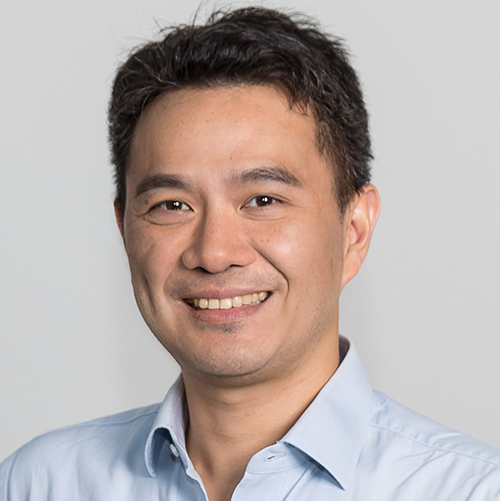The momentum within Asia’s diverse blockchain ecosystem was well documented during 2018, characterised by a thriving jobs market, the hosting of a range of premiere events attracting thousands of elite blockchain figures, and important movements on the regulatory front. The recent price volatility in the crypto market hasn’t dampened the collective progress of Asian nations, and the future looks bright.
A report by Global Markets Insight suggested that the Asia Pacific blockchain market is estimated to grow at a rate of over 87% by 2024. With spending on blockchain solutions in the Asia Pacific region forecast to reach US$2.1 billion by 2022, which jurisdiction is equipped to absorb the largest share, and become the region’s undisputed leader in blockchain innovation?
Regulation
In Singapore, proactive regulatory advances have seen the jurisdiction set the pace as an early mover in Asia. A recent CoinTelegraph report shone a spotlight on the scale of activity enabled by Singapore’s approach to blockchain and crypto regulation, helping the country become a destination of choice for ICOs. Singapore has hosted over 10% of the world’s top 100 ICO’s, illustrating the intrinsic link between regulatory efforts and igniting movement within the business community.
In Singapore, proactive regulatory advances have seen the jurisdiction set the pace as an early mover in Asia. A recent CoinTelegraph report shone a spotlight on the scale of activity enabled by Singapore’s approach to blockchain and crypto regulation, helping the country become a destination of choice for ICOs. Singapore has hosted over 10% of the world’s top 100 ICO’s, illustrating the intrinsic link between regulatory efforts and igniting movement within the business community.
Since laying out an ambitious roadmap for blockchain regulation leadership, regulators in Singapore have kept their foot on the pedal. In May 2018, the Monetary Authority of Singapore (MAS) proposed that regulatory standards be revised to accommodate blockchain-based, decentralized exchanges. The MAS announced that it was aiming to introduce a regulatory framework for cryptocurrency exchange services.
The approach to cryptocurrency regulation in South Korea has been more reactive than that of Singapore, following a number of major events that made headlines internationally. Coming to grips with mainstream trading of cryptocurrencies proved a challenging endeavour for South Korean authorities. Two high-profile exchange security breaches spurred the government to work on implementing robust crypto legislation, following the hacks on Coinrail and the country’s second largest crypto exchange, Bithumb, resulting in over US$70 million in collective losses. Following these incidents, the government has attempted to stem the prevalence of these hacks. The country’s Financial Services Commission (FSC) last year created the Financial Innovation Bureau, a new division dedicated to develop policy initiatives around financial innovation, with a keen eye on cryptocurrencies. Officials have also introduced measures to mitigate the risk of money-laundering through the use of cryptocurrencies. As of this month, seven of South Korea’s largest crypto exchanges have passed security audits conducted by the government.
While blockchain regulation should be a top priority for any jurisdiction with aspirations of harnessing the technology’s potential in their economies, without the right educational environment, progress will be limited.
Education
From an educational point of view, significant progress has been made in Singapore, with the National University of Singapore (NUS) ramping up efforts to promote fintech and blockchain training in the region. In April 2017, the NUS School of Computing and the IBM Center for Blockchain Innovation (ICBI) announced collaborative plans to develop a module on financial technology, with a sharp focus on blockchain and distributed ledger technologies.
From an educational point of view, significant progress has been made in Singapore, with the National University of Singapore (NUS) ramping up efforts to promote fintech and blockchain training in the region. In April 2017, the NUS School of Computing and the IBM Center for Blockchain Innovation (ICBI) announced collaborative plans to develop a module on financial technology, with a sharp focus on blockchain and distributed ledger technologies.
The ambition of NUS to play a central role in ushering in a new era of blockchain discovery on home soil was further underlined in September 2018, when the University announced the launch of the Cryptocurrency Strategy, Techniques and Algorithms (CRYSTAL) Center, an academic research lab and think tank geared towards fostering a technical community of thought leaders and experts in the blockchain space.
The approach in Singapore is clear – blockchain innovation evolves in tandem with educational development. Close collaboration between educational institutions and industry heavyweights such as IBM gives expression to the jurisdiction’s pursuit of the highest standards in terms of education and technological advancement. South Korea and Japan have taken note, with both countries pouring significant resources into mirroring Singapore’s success on the education front.
With 63% of the population boasting a college level education, South Korea’s highly educated workforce has always been the backbone of the country’s success. The launch of the Walton Blockchain Institute as part of the South Korea Ministry of Science and ICT’s plans to cultivate 10,000 blockchain talents, demonstrates a commitment to creating a healthy blockchain ecosystem. In Japan, the University of Tokyo launched the ‘Blockсhain Innovation Donation Course’ in November 2018 with the goal of nurturing blockchain entrepreneurs and encouraging business-minded students to pursue fintech and blockchain technology.
Regulations supporting blockchain technology along with education are driving the adoption of the technology in Asia. This approach captures the collaborative spirit powering Singapore’s ascent as Asia’s blockchain mecca, sparking a phase of growth for budding blockchain projects. A proactive approach to setting out a sustainable, workable regulatory framework while fostering blockchain talent through landmark education initiatives is paying dividends, and gives the jurisdiction a distinct edge in the ongoing race for decentralized innovation.
Frank Wagner is CEO and co-founder of INVAO, a blockchain asset pool.





.jpg)
.jpg)


